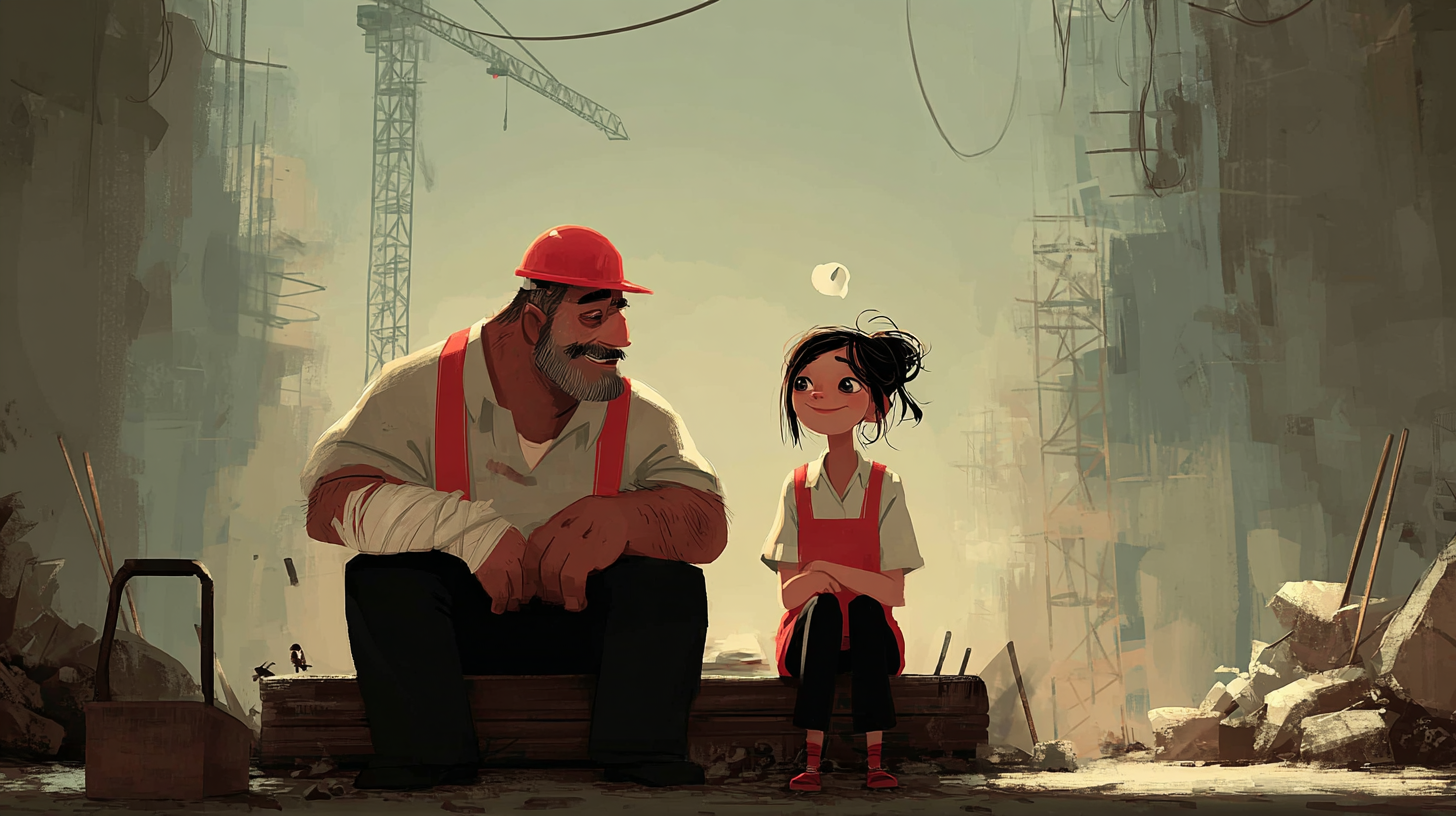A “wound” is a cut or injury to the body, often caused by something sharp.
ナイフや事故などでできる「けが」や「きず」のこと。
以下は英単語 “wound” に関するストーリー型学習コンテンツです。まずは大枠の意味を理解して最後の文章で確認しましょう。
主な意味(main meaning)
| 品詞 | 定義(簡潔) | 発音記号(IPA) | 英語例文 |
|---|---|---|---|
| 名詞 | けが・傷(特に刃物や銃による) | /wuːnd/ | He had a deep wound on his leg. |
| 動詞 | 傷つける・けがをさせる | /wuːnd/ | The soldier was wounded during the battle. |
語源(etymology)
「wound」は古英語 wund に由来し、「打撃による体の損傷」というイメージを持つ。体にあいた穴や切れ目という意味が核にある。
類義語(synonyms)
| 類義語 | 英語例文 |
|---|---|
| injury | He suffered a serious injury in the car accident. |
| cut | She got a cut on her finger while chopping vegetables. |
| bruise | He had a big bruise on his arm after falling down. |
| sore | My muscles are sore after the workout. |
| lesion | The doctor found a small lesion on his skin. |
反義語(antonyms)
| 反義語 | 英語例文 |
|---|---|
| healing | The wound is finally healing well. |
| health | Regular exercise can improve your overall health. |
コロケーション(collocations)
| コロケーション | 英語例文 |
|---|---|
| deep wound | He had a deep wound on his arm after the fall. |
| open wound | Clean the open wound with water first. |
| gunshot wound | The police reported a gunshot wound on the victim. |
| treat a wound | The nurse treated the wound quickly. |
| wound infection | He got a wound infection from not cleaning it. |
2項表現(binomials)
| 2項表現 | 英語例文 |
|---|---|
| cuts and bruises | He came home with cuts and bruises after the game. |
| aches and pains | After the hike, she had some aches and pains. |
英語ストーリー(english story)
Title: The Wounded Worker
Ken works at a construction site. One day, while he was cutting a wooden board, he accidentally gave himself a deep wound on his hand. Blood started coming out quickly. His co-worker, Jane, rushed over and helped him. She had some experience as a nurse and knew how to treat a wound.
Ken sat down while Jane cleaned the open wound with water and wrapped it in a bandage. “It’s important to keep it clean,” she said. “You don’t want a wound infection.”
Later, they took Ken to the clinic. The doctor said it was a gunshot wound, but Jane laughed and said, “No, it’s just a cut from a saw!” The doctor smiled and gave Ken some medicine.
While resting at home, Ken thought about how lucky he was. He could have suffered a worse injury. His arm had some cuts and bruises, but he was okay.
The wound began healing after a few days. “I’m thankful for Jane,” he said. “She helped me more than anyone.” From then on, Ken was more careful at work.
和訳
タイトル:けがをした作業員
ケンは工事現場で働いています。ある日、木の板を切っていると、誤って手に**深いけが(deep wound)**をしてしまいました。血がすぐに出てきました。彼の同僚ジェーンが急いで駆けつけ、助けてくれました。ジェーンは元看護師で、**傷の手当て(treat a wound)**の仕方を知っていました。
ケンは座って、ジェーンが**開いた傷(open wound)**を水で洗い、包帯を巻いてくれました。「きれいに保つことが大切よ」とジェーンは言いました。「**傷の感染(wound infection)**を防がないといけないからね。」
その後、2人はケンをクリニックに連れて行きました。医者は「**銃創(gunshot wound)**だ」と言いましたが、ジェーンは笑って「ノコギリで切っただけよ」と言いました。医者は笑って、薬を渡しました。
家で休んでいる間、ケンは「もっとひどい**けが(injury)だったかもしれない」と思いました。腕にはいくつかの切り傷やあざ(cuts and bruises)**がありましたが、大丈夫でした。
数日後、**傷は治りかけ(healing)**ていました。「ジェーンには感謝しているよ」とケンは言いました。「彼女は誰よりも助けてくれた。」それからケンは仕事でより注意するようになりました。
Q&A
Q: “wound” と “injury” の違いは?
A: 「wound(傷)」は、ナイフや銃などで皮膚が切れたり穴が開いたりする外傷を指します。
「injury(けが)」はもっと広い意味で、骨折・打撲・捻挫など体のどこかが損傷した場合すべてに使えます。
Q: “wound” と “cut” の違いは?
A: 「cut(切り傷)」は、ナイフや紙で切った跡を指し、小さな傷に使われることが多いです。
「wound」はもっと重い印象で、深くて重大なけがにも使われます(特に事故や戦争などの文脈で使われやすいです)。
Q: “wound” と “bruise” の違いは?
A: 「bruise(あざ)」は、打ったりぶつけたりして皮膚の下が青くなる傷で、出血はしません。
「wound」は皮膚が破れて出血するようなけがなので、見た目も原因も異なります。
Q: “wound” と “sore” の違いは?
A: 「sore(痛むところ・炎症)」は、皮膚や体の部分が赤くなってヒリヒリするような状態を指します(例:口内炎、筋肉痛)。
「wound」は物理的な切り傷や外傷で、見てすぐにわかるようなけがを指します。
Q: “wound” と “lesion” の違いは?
A: 「lesion(病変)」は、体の組織や臓器にできた異常な部分のことを指し、病気や感染によるものが多いです。
「wound」は、けがによる外傷を指し、一般的に「lesion」よりも日常的な表現です。
Q: “deep wound” と “cut” の違いは?
A: 「deep wound(深い傷)」は、皮膚の奥深くまで達している重いけがを表します。
「cut」は浅く小さい切り傷にも使えるため、深刻度に大きな違いがあります。
Q: “open wound” と普通の “wound” の違いは?
A: 「open wound(開いた傷)」は、皮膚が完全に破れていて中が見えるようなけがを指します。
「wound」だけでも「傷」を意味しますが、「open」がつくとより深刻で未処置の状態を強調します。
Q: “gunshot wound” は “wound” とどう違う?
A: 「gunshot wound」は銃で撃たれたことによる傷で、「wound」の中でも特に原因が銃であることを明確にします。
Q: “treat a wound” と “heal a wound” の違いは?
A: 「treat a wound」は人が処置(消毒や包帯など)をする行為です。
「heal a wound」は傷が自然に治る過程を指し、主語は「時間」や「体」になります(例:The wound is healing)。
Q: “wound infection” とは普通の “infection” と何が違うの?
A: 「wound infection(傷口の感染)」は、傷からばい菌が入って炎症や化膿を起こす状態です。
「infection」はもっと広く、風邪や肺炎などの体内の感染症にも使われます。
Q: “cuts and bruises” は “wounds” より軽いの?
A: はい。「cuts and bruises」は軽いけが(すり傷やあざ)をまとめて言う表現で、深刻ではない印象です。
「wounds」はもっと重症なけがに使われることが多いです。



コメント